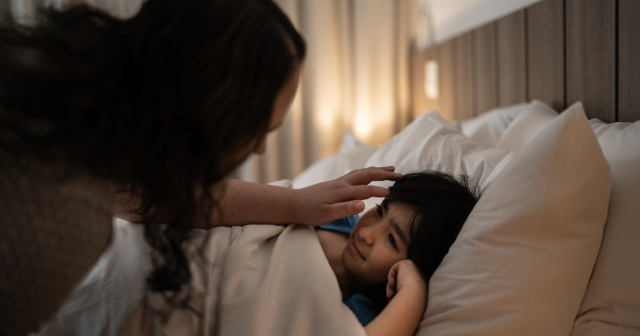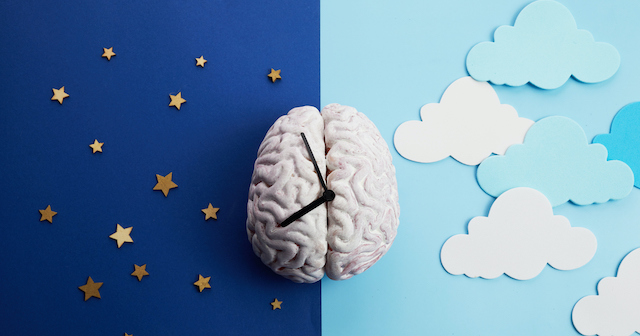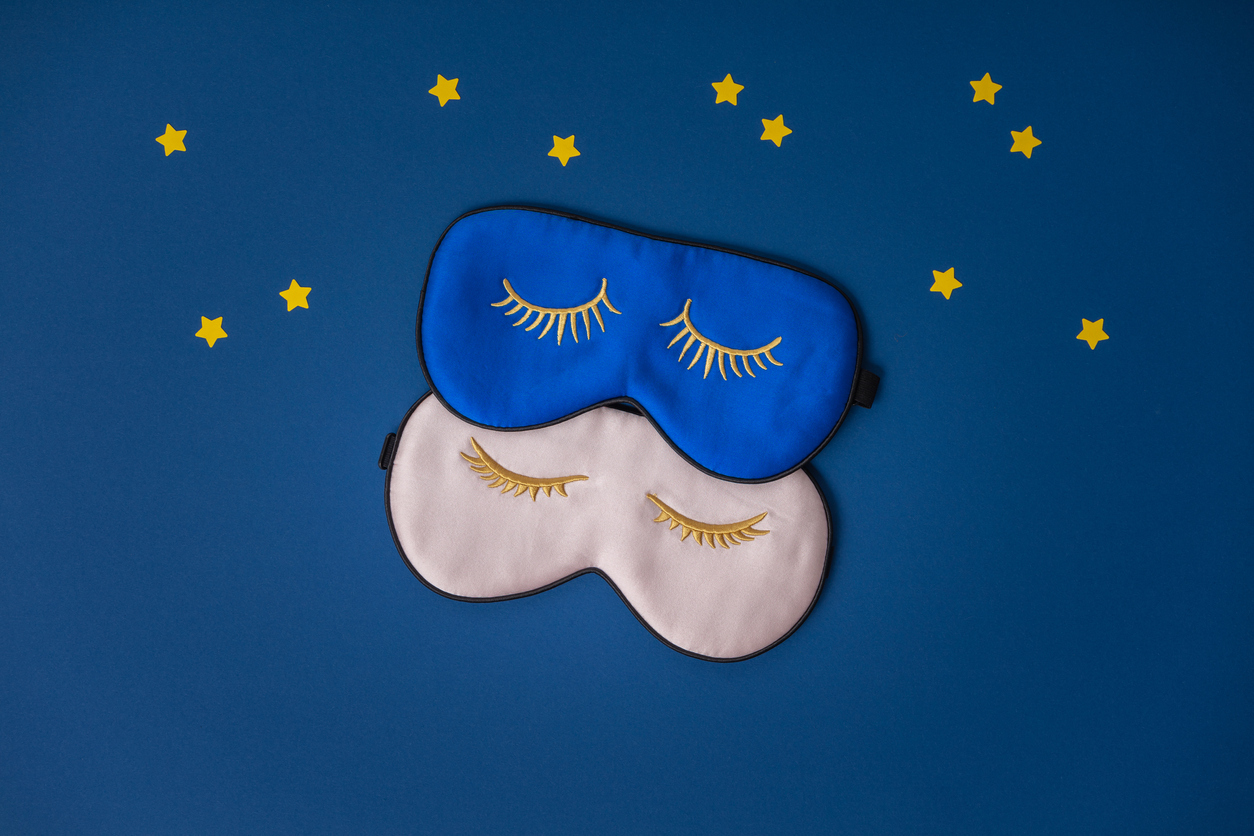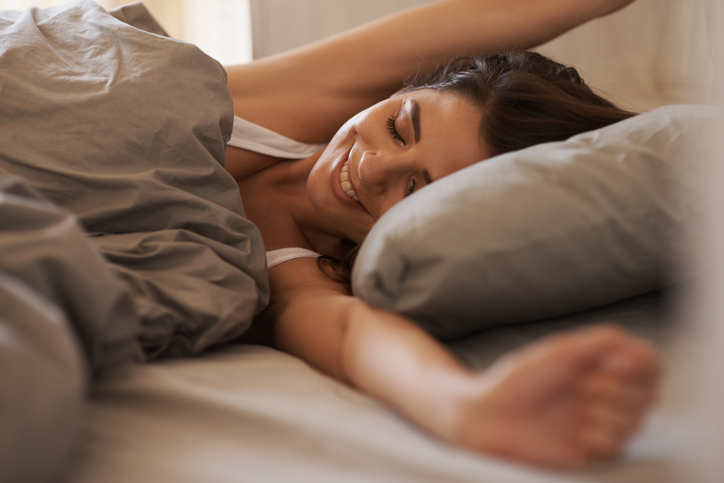If you have trouble falling asleep, staying asleep or both, you’re not alone. Around 1 in 3 adults have difficulty sleeping. When it happens regularly, it’s known as insomnia.
Too much stress and using a smartphone at bedtime can affect how well you sleep, but something else could be sabotaging your sleep - your diet.
Whether you sleep well most of the time or have struggled with poor sleep for years, this article will show you how what you eat and drink each day could prevent you from having the best sleep possible.
What is insomnia?
Everyone sleeps badly from time to time, but for those with insomnia, poor sleep is a regular problem that can last for months or years.
If you’re not sure if you have insomnia, answer the following questions:
- do you struggle to go to sleep?
- do you wake up more than once during the night?
- do you wake up early and cannot go back to sleep?
- do you wake up for long periods during the night?
- do you still feel tired after waking up?
- do you find it difficult to nap during the day even when you're tired?
- do you feel tired and irritable during the day?
- do you find it difficult to concentrate during the day because you're tired?
If you answered yes to any of these questions, it’s likely you have insomnia.
What causes insomnia?
Insomnia can be triggered or made worse by certain foods in your diet, but there may be other causes. For example, some people can struggle to sleep for days, weeks or months after a physically or emotionally stressful life change, such as the death of a loved one, a divorce or taking a long-haul flight (jet lag).
Certain medical conditions or sleep disorders can cause poor sleep that may last for many months. Such conditions include depression, anxiety, restless legs syndrome and diseases that cause pain or breathing difficulties.
Always see a doctor if you have trouble sleeping on a regular basis. They will be able to check if an underlying medical issue could be the cause of your insomnia.
Regardless of the cause of your insomnia, it’s worth reviewing your diet to see if it includes foods that are known to affect sleep. Minimising or eliminating these foods could help to improve your sleep.
Foods and drinks that cause insomnia
Alcohol
Do you drink more than 14 units of alcohol (the equivalent of 7 pints of beer or 14 single shots of spirits) each week? If so, this could be keeping you from experiencing the type of sleep that leaves you feeling alert and well-rested in the morning.
Drinking alcohol before going to bed can quickly put you into a deep sleep. However, it also disrupts your normal sleep cycle, causing you to spend less time in restorative deep sleep.
But this is not the only reason why alcohol is bad for sleep. Alcohol is a diuretic that encourages the body to lose extra fluid as pee, and it’s hard to get a good night’s sleep if you keep waking up to use the toilet.
Caffeine-rich foods
How much caffeine do you consume each day?
It may be more than you think because caffeine is naturally found in over 60 plants and used to make a wide variety of foods, drinks and medicines.
Coffee is the best-known source of caffeine, but if the following caffeine-rich foods are also in your diet, you may be consuming more of the stimulant than you realise:
- tea - all types (except herbal teas) contain caffeine. Black tea (47mg to 90mg per cup) has more caffeine than green tea (20mg to 45mg per cup), and green tea contains more caffeine than white tea (6mg to 60mg per cup)
- chocolate - cocoa contains caffeine, so the higher a chocolate bar’s cocoa content, the higher its caffeine content
- some soft drinks - including cola, diet cola and Mountain Dew
- energy drinks
- chocolate or coffee-flavoured desserts
- some protein bars - especially ‘energy’ protein bars and those flavoured with chocolate or coffee
- products that contain:
guarana,
yerba mate,
theophylline,
theobromine,
ginseng,
taurine
Caffeine is also added to some painkillers and other medicines.
If you’re eager to reduce your caffeine intake, check the label or speak to a pharmacist to find out if caffeine is in a medicine you take regularly.
Caffeine has no nutritional value, so it’s safe to completely eliminate it from your diet. However, you can get better sleep and still enjoy caffeine by consuming no more than 250mg of caffeine daily – that’s 3 small cups of coffee.
You should also stop consuming all sources of caffeine at least 6 hours before your bedtime.
Fatty and spicy foods
Do you eat fatty and/or spicy foods often?
If so, eating them less often could improve your sleep. This is because both fatty and spicy foods can trigger heartburn, which can cause discomfort during the night and disrupt your normal sleep cycle.
Heavy meals
Do you eat heavy meals just before going to bed?
Doing so may affect your sleep because:
- lying down with a full stomach can make you uncomfortable
- the digestive system slows down when you sleep
- heavy meals can lead to heartburn
If you eat a heavy meal, try to finish it at least 4 hours before going to bed.
Try making the dietary changes outlined in this article 1 week at a time and pay attention to which help you to sleep better.
Why not download our app and use the sleep tracker to help you quickly and accurately track how your sleep changes as you adjust your diet?




